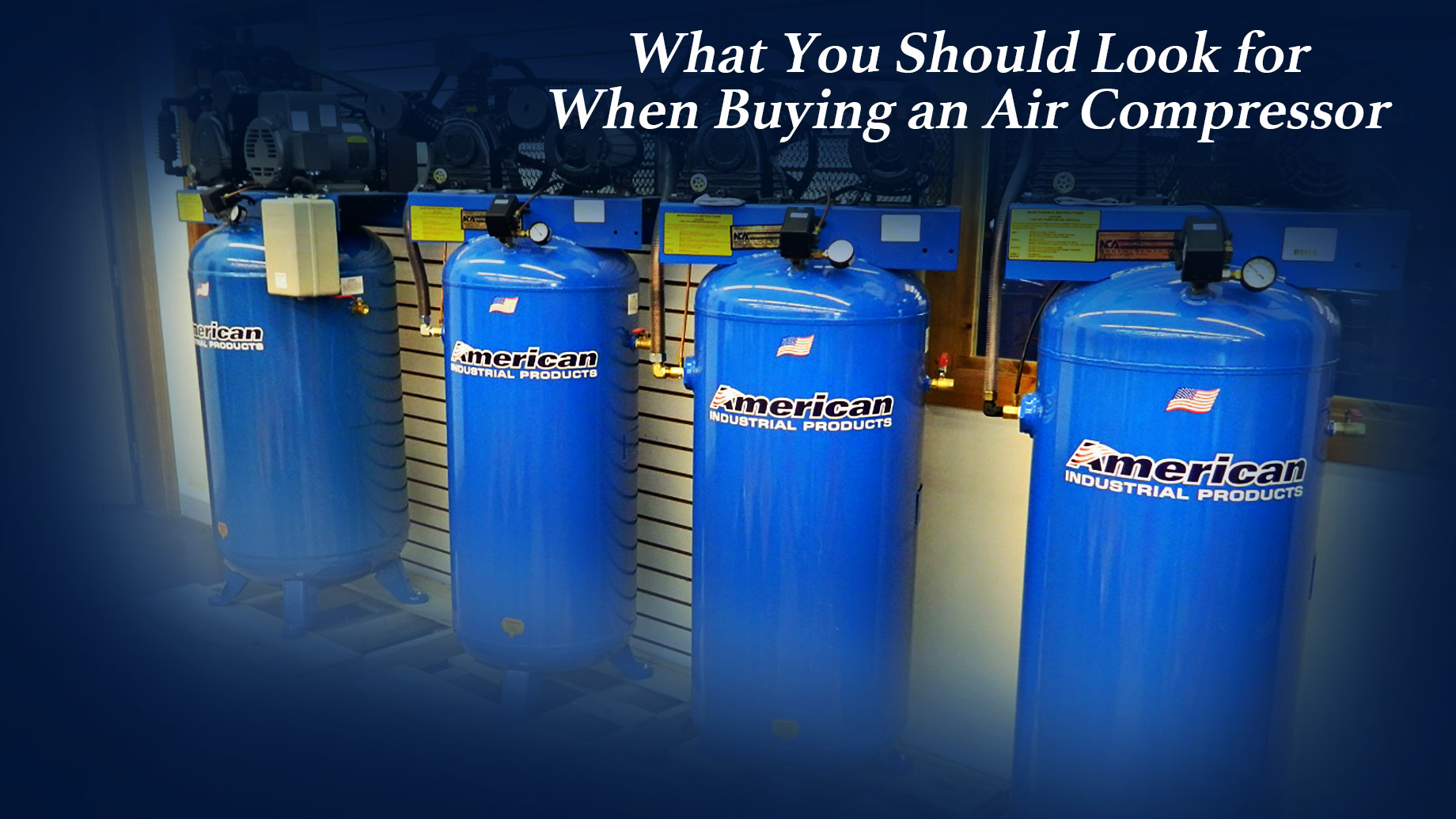
An air compressor converts power into energy stored as pressurized or compressed air. You can use compressed air to rotate a shaft or produce a high-speed jet like a paint sprayer. You can also use compressed air to provide rotation power for tools such as brushes, riveting guns, and screwdrivers. If you are in the market for an air compressor, there are several things to consider. Read on to discover what you should look for when buying an air compressor.
- Type. Air compressors come in two varieties; electric or gas. If you intend to use your compressor while indoors, go for the electric one since it does not emit fumes. If you are outdoors, go for the gas air compressor. Gas can be more efficient and cheaper to run than electric ones. However, there are some things to consider. For instance, electric compressors are ideal for portable cases. Also, the exhaust from gas compressors can be an issue in some cases.
- Horsepower. Whether you are a contractor or a hobbyist, you need an air compressor that can get the job done. The size of the air compressor you need determines the horsepower rating you get. However, some marketers may exaggerate the horsepower to help them sell more machines. An industrial 5 HP compressor is often bigger and more expensive than an overrated hobby 5 HP compressor. When checking the horsepower, start by looking at how much electrical power you need to run the compressor. A true 5 HP air compressor uses about 24 amps on a 220-volt circuit, while the overrated one will run on a 15 amp on a 110-volt circuit. If the marketer tells you that you can plug the compressor into a regular wall plug, know that the machine cannot exceed 2 HP.
- Air Pressure. Air pressure is rated in PSI (pounds per square inch). Most air tools require 90 PSI to operate. However, you will need a compressor with a high shut-off power to maintain 90 PSI at the tool. Most industrial air compressors build-up to shut-off pressure in two stages. The first stage builds-up to 90 PSI, while the second builds-up to 175 PSI. Small commercial duty or hobby compressors are single-staged, and they shut off at 125 to 135 PSI. If you consider the hose and couplers’ pressure restrictions, the small commercial-duty machines may not build enough pressure on the tool.
- Cubic Feet per Minute. Each air tool requires a specific volume of air to keep it running. Cubic Feet per Minute (CFM) is the unit used to rate air volume produced by an air compressor. Sometimes you may see multiple CFM ratings at different pressures on a compressor. CFM is a calculated rating based on the size and speed of the compressor pump. However, this rating should not worry you because it is at zero pressure. The crucial CFM rating on small compressors is at 90 PSI since it is the minimum pressure required to run most tools. Choose an air compressor with a CFM rating of 3-4 per actual HP at 90 PSI.
Buying an air compressor is not as confusing as it sounds. However, ensure you follow the best air compressor buying guide to get the ideal machine for your needs.